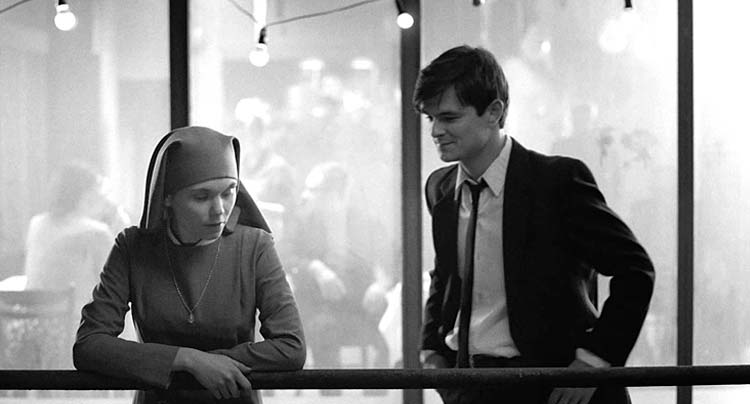
Even if it's more admirable than it's involving, there's still plenty to admire.

Even if it's more admirable than it's involving, there's still plenty to admire.
Anna (Agata Trzebuchowska) is an 18-year-old orphan who is about to become a nun in 1960s Poland. At the insistence of her superior, Anna visits her only known family before taking her vows. Her aunt Wanda (Agata Kulesza), a judge and respected member of the Communist party, wastes no time telling Anna about her background; Anna (real name Ida) is Jewish, given up as an orphan after Nazis presumably murdered her parents. Wanda joins Ida as she heads back to her hometown, hoping to find her parents’ grave.
This road trip sets off an examination into identity for Ida and closure for Wanda. Director Pawel Pawlikowski, shooting for the first time in his native country, and Directors of Photography Łukasz Żal & Ryszard Lenczewski tell Ida’s story in stunning images. Shooting on 35mm in Academy ratio, Pawlikowski uses striking compositions to express Ida & Wanda’s states of mind. Pawlikowski’s locked down camera establishes the trapped state both women are in, one by her past and the other by her future. Their feelings of isolation, a sign of how much World War II still lingers in the back of everyone’s minds, shows through Pawlikowski framing the two on the sides or bottom of the screen.

Trzebuchowska, a non-professional discovered by Pawlikowski (in a café, of all places), captivates as the titular character. The dynamic set up between Ida’s quiet, humble demeanor and Wanda’s no-bullshit attitude makes their road trip fascinating. It takes time before Wanda’s reasons for hunting down her family’s skeletons comes to the surface, and when it does her behaviour is redefined by a tragic context. Kulesza turns out to be the real discovery in the film, but it comes as no big surprise; Ida’s written to absorb what she sees, while Wanda acts as the film’s emotional lightning rod.
But emotions begin and end with Wanda, sadly. It can’t be stated enough how gorgeous Pawlikowski’s visuals are, but the classical style generates an emotional distance to the storyline. The aesthetic admiration leads to a passive viewing instead of an active one. Ida’s own character development, a mostly run of the mill coming of age story, doesn’t engage too much because of Ida’s role as a blank slate for most of the runtime. These issues aren’t too problematic though; they merely hold Ida back from achieving the potential shown through its gorgeous craftsmanship. At a lean 80 minutes no shot is wasted, a narrative efficiency that works largely in the film’s favor. Even if Ida is more admirable than it’s involving, there’s still plenty to admire.